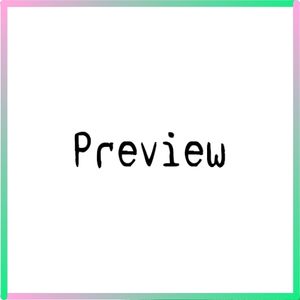When you open a children’s book, what’s the first thing that catches your eye? It’s not just the colorful illustrations or the exciting story but also the font used in the book. Fonts play a crucial role in making children’s books engaging and readable. In this article, we’ll explore the 15 best fonts for children’s books and understand why and how these fonts are the perfect choice for young readers.
The Role of Fonts in Children’s Books
Understanding Readability and Engagement
Fonts are more than just pretty letters on a page. They have a big job to do in helping kids read and enjoy a book. A good font makes words easy to read and encourages children to keep turning the pages. It’s like a secret partner in storytelling, quietly helping the story come alive.
Impact of Fonts on Comprehension
Imagine trying to read a book where the letters are all squished together, or they look like they’re dancing around on the page. It would be really hard to understand, right? That’s why the right font is essential. It helps children understand the words and the story better.
Emotional Connection Through Typography
Fonts can also create feelings and moods. Some fonts make you feel happy, while others make you feel serious. When the font matches the story’s mood, it can help you connect with the characters and the adventure.
The 15 Best Fonts for Children’s Books
Let’s dive into the world of fonts and discover why these 15 are the best for children’s books:
Font 1: Comic Sans MS

Why it’s great for children’s books: Comic Sans MS is like a friend telling you a story. It’s relaxed, easy to read, and perfect for fun tales.
How it adds a fun and friendly vibe: The rounded letters and casual style make it feel like a conversation with a buddy.
Font 2: Arial Rounded MT Bold

Why it’s a clear and simple choice: This font is like a clear road without any bumps. It helps kids read smoothly.
How it enhances clarity and legibility: The bold and rounded letters make each word stand out.
Font 3: KG Primary Dots

Why it’s perfect for early readers: KG Primary Dots is like learning to write with colorful crayons. It helps children recognize letters.
How it helps in letter recognition: The dots on each letter make it easier for beginners to see and learn.
Font 4: Chalkboard SE

Why it adds a playful touch: Chalkboard SE is like writing on a chalkboard during recess. It brings a playful feel to the pages.
How it creates a classroom feel: The slightly messy strokes give it a chalky charm.
Font 5: Jolly Lodger

Why it’s whimsical and eye-catching: Jolly Lodger is like a magic wand making letters dance. It’s perfect for exciting adventures.
How it sparks imagination: The playful curls and twists make words come alive.
Font 6: Gochi Hand

Why it’s friendly and inviting: Gochi Hand is like an invitation to explore a magical land. It makes you want to read aloud.
How it encourages reading aloud: The friendly, handwritten style feels like someone is telling you a story in person.
Font 7: Tahoma

Why it’s a classic choice: Tahoma is like a reliable old friend. It’s classic and easy to read.
How it ensures uniformity: The clean lines and even spacing make it look tidy and organized.
Font 8: Kristen ITC
Why it’s personal and unique: Kristen ITC is like a handwritten letter from a loved one. It adds a personal touch.
How it connects with young readers: The cursive style feels warm and comforting.
Font 9: Schoolbell

Why it’s reminiscent of school days: Schoolbell is like a trip down memory lane to your favorite classroom. It brings back school memories.
How it creates nostalgia: The simple, school-style letters remind us of our early learning days.
Font 10: Doodle Print

Why it’s creative and artistic: Doodle Print is like an art canvas waiting for your imagination. It’s perfect for creative stories.
How it fosters creativity in children: The hand-drawn look encourages kids to doodle and imagine their own adventures.
Font 11: Bradley Hand ITC
Why it’s warm and approachable: Bradley Hand ITC is like a warm hug from a grandparent. It feels friendly and welcoming.
How it builds trust with young readers: The gentle, handwritten style creates a bond with the reader.
Font 12: Baby Kruffy

Why it’s cute and endearing: Baby Kruffy is like a baby animal, all adorable and sweet. It’s perfect for heartwarming stories.
How it elicits smiles from children: The cute, round letters make kids smile as they read.
Font 13: KG Miss Kindergarten

Why it’s ideal for early education: KG Miss Kindergarten is like a teacher’s best helper. It’s designed for young learners.
How it supports learning the alphabet: The clear and friendly letters help kids recognize and remember their ABCs.
Font 14: Sassoon Primary
Why it’s an educational staple: Sassoon Primary is like a school textbook – clear and educational.
How it helps in letter formation: The letters are designed to help children learn to write neatly.
Font 15: Print Clearly

Why it’s a must for beginners: Print Clearly is like a stepping stone for young readers. It’s simple and easy to follow.
How it simplifies reading for young minds: The clear and straightforward letters make it perfect for kids who are just starting to read.
How to Choose the Right Font
Consider the Age Group and Reading Level
Prioritize Readability and Legibility
Keep the Theme and Tone of the Book in Mind
Test and Gather Feedback from the Target Audience
Conclusion
In the world of children’s books, fonts are more than just letters; they are the bridge between words and young minds. We’ve explored 15 incredible fonts, each with its own magic. As a young reader or an aspiring writer, remember that choosing the right font can make your reading experience extraordinary. So, go ahead, experiment, and choose wisely, and you’ll create unforgettable adventures for generations to come. Happy reading and writing!
